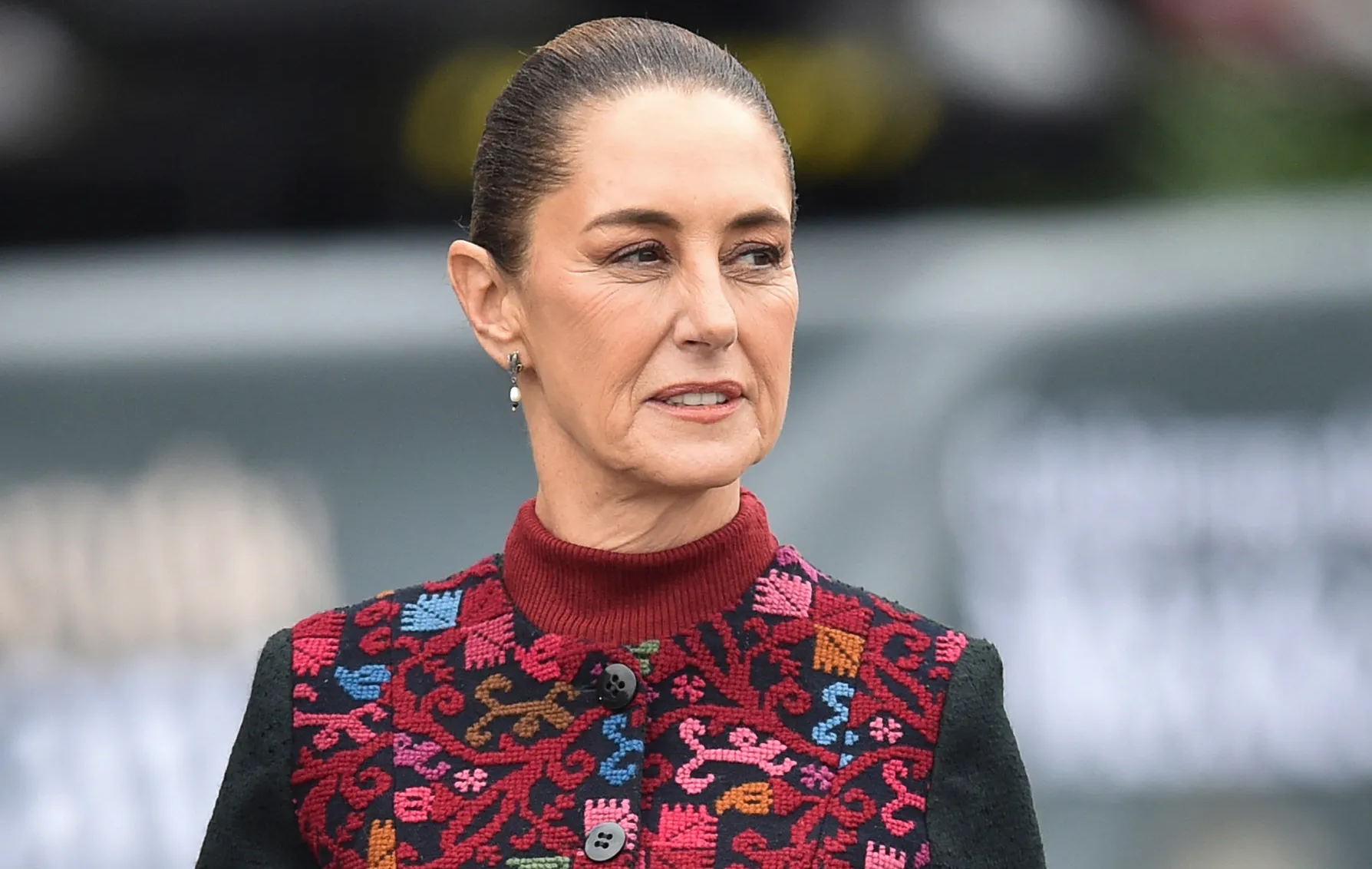In a move that has sparked significant debate and international attention, former U.S. President Donald Trump proposed renaming the Gulf of Mexico as the “Gulf of America.” The suggestion, which emerged as part of an executive order aimed at restoring “names that honor American greatness,” has drawn both sharp criticism and enthusiastic support. The proposal raises questions about national identity, international diplomacy, and the historical significance of shared geographical landmarks.
The Executive Order: Honoring American Heritage
Trump’s executive order, unveiled as part of his vision to promote American heritage, emphasized the importance of celebrating “the extraordinary legacy of visionary and patriotic Americans.” The order called for renaming key national landmarks to reflect this sentiment, citing the need to highlight America’s historical contributions and natural treasures.

Claudia Sheinbaum (left) and Donald Trump (right). Credit / Getty Images
Among the changes proposed in the order was the renaming of North America’s highest peak back to “Mount McKinley,” honoring President William McKinley. However, the most contentious suggestion was to rename the Gulf of Mexico as the “Gulf of America.”
In his statement, Trump declared:
“The Gulf will continue to play a pivotal role in shaping America’s future and the global economy. In recognition of this flourishing economic resource and its critical importance to our Nation’s economy and its people, I am directing that it officially be renamed the Gulf of America.”
Mexico’s Firm Rebuttal
The reaction from Mexico was swift and unequivocal. Mexican President Claudia Sheinbaum addressed the matter directly during a press conference, making it clear that Mexico would not acknowledge such a change.
“He says that he will call it the ‘Gulf of America’ on its continental shelf. For us, it is still the Gulf of Mexico, and for the entire world, it is still the Gulf of Mexico,” Sheinbaum stated.
Her response underscored the shared history and cultural ties that the Gulf represents, not just for Mexico but for the other nations that border it, including Cuba.
Historical and Geographical Significance of the Gulf
The Gulf of Mexico is more than a body of water; it symbolizes centuries of history, collaboration, and mutual dependence. Shared by the United States, Mexico, and Cuba, it serves as a vital economic and ecological resource. The Gulf supports major industries, including fishing, oil production, and international shipping, making it a cornerstone of economic activity for all three nations.
Changing the name of such a significant geographic feature would not only impact its identity but also challenge international agreements governing territorial waters. Critics argue that the proposal disregards the Gulf’s shared ownership and long-standing significance as a cooperative space.
Critics React: Concerns Over Hyper-Nationalism
The suggestion to rename the Gulf has been met with skepticism and criticism from various quarters. Political analysts have labeled it an act of “hyper-nationalism,” accusing the proposal of undermining historical and cultural ties in favor of a unilateral display of American dominance.
“This isn’t just about a name,” one political commentator remarked. “It’s about erasing shared history and alienating neighboring countries for the sake of symbolism.”
Environmentalists have also expressed concerns, urging that the focus should be on preserving the Gulf’s fragile ecosystem rather than engaging in symbolic renaming efforts. The Gulf of Mexico has long been plagued by issues such as oil spills, overfishing, and the effects of climate change. Critics argue that resources should be directed toward addressing these pressing concerns.
Supporters’ Perspective: A Symbol of Strength
Despite the backlash, some supporters of the proposal see it as a symbolic gesture of American strength and independence. They argue that renaming the Gulf of Mexico could serve as a reminder of America’s economic and strategic significance in the region.
For proponents, the renaming aligns with broader efforts to reinforce national identity and pride. However, this perspective has been overshadowed by the diplomatic and logistical challenges such a move would entail.
International Implications and Challenges
Renaming the Gulf of Mexico would likely require complex diplomatic negotiations, given the shared territorial waters and international treaties involved. The United Nations Convention on the Law of the Sea (UNCLOS) governs such bodies of water, and any attempt to alter their designation would need consensus from all bordering nations.
Legal experts have pointed out that the United States cannot unilaterally rename the Gulf without violating international norms. Doing so could strain relations with Mexico and Cuba, creating unnecessary tensions at a time when regional cooperation is crucial.
Social Media Buzz and Public Reactions
The proposal has also become a hot topic on social media, with reactions ranging from outrage to amusement. A viral clip of former U.S. Secretary of State Hillary Clinton laughing upon hearing about the idea has garnered widespread attention, further fueling the debate.
On platforms like X (formerly Twitter), users have shared memes and jokes, with one user quipping, “If it’s renamed, will Americans also claim responsibility for hurricanes?” Others have pointed out the irony of proposing a name change while ignoring pressing issues like climate change and environmental degradation in the Gulf.
Hillary laughing at Trump announcing he’s renaming the Gulf Of Mexico to the Gulf of America 😂 pic.twitter.com/UWypR7d8vb
— Adam (@AdamJSmithGA) January 20, 2025
A Larger Conversation About Patriotism and Identity
While the idea of renaming the Gulf of Mexico remains speculative, the debate has highlighted broader questions about national pride, symbolism, and how countries choose to represent themselves. For many, the proposal feels like an unnecessary provocation, while others view it as an opportunity to reflect on the values that define a nation.
As discussions continue, one thing is clear: the Gulf of Mexico, by any name, will remain a vital and shared resource that demands cooperation and care.

